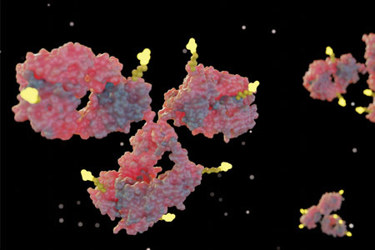Thunderstruck By Antibody-Drug Conjugates

Antibody-drug conjugates (ADCs) are revolutionizing cancer treatment by offering a more targeted approach compared to traditional chemotherapy. In classic chemotherapy, drugs are dispersed throughout the body, indiscriminately killing both cancerous and healthy cells. This often leads to significant side effects and collateral damage to healthy tissues. ADCs, on the other hand, are designed to specifically target tumor cells. They consist of an antibody linked to a potent drug, which is delivered directly to the cancer cells. This targeted delivery minimizes the impact on healthy cells, potentially reducing side effects and improving the overall safety profile of the treatment.
However, ADCs can sometimes exhibit a phenomenon known as the 'bystander effect.' This occurs when the cytotoxic payload not only destroys the targeted cancer cells but also affects neighboring cells that do not express the target antigen, which includes healthy cells. While this might seem like a drawback, it can enhance the efficacy of the treatment. By affecting adjacent cells, ADCs can reach beyond their intended targets, which helps to eliminate heterogeneous tumor cell populations and potentially overcome resistance mechanisms that might otherwise limit the effectiveness of the therapy.
Access the full article to learn more.
Get unlimited access to:
Enter your credentials below to log in. Not yet a member of Pharmaceutical Online? Subscribe today.
